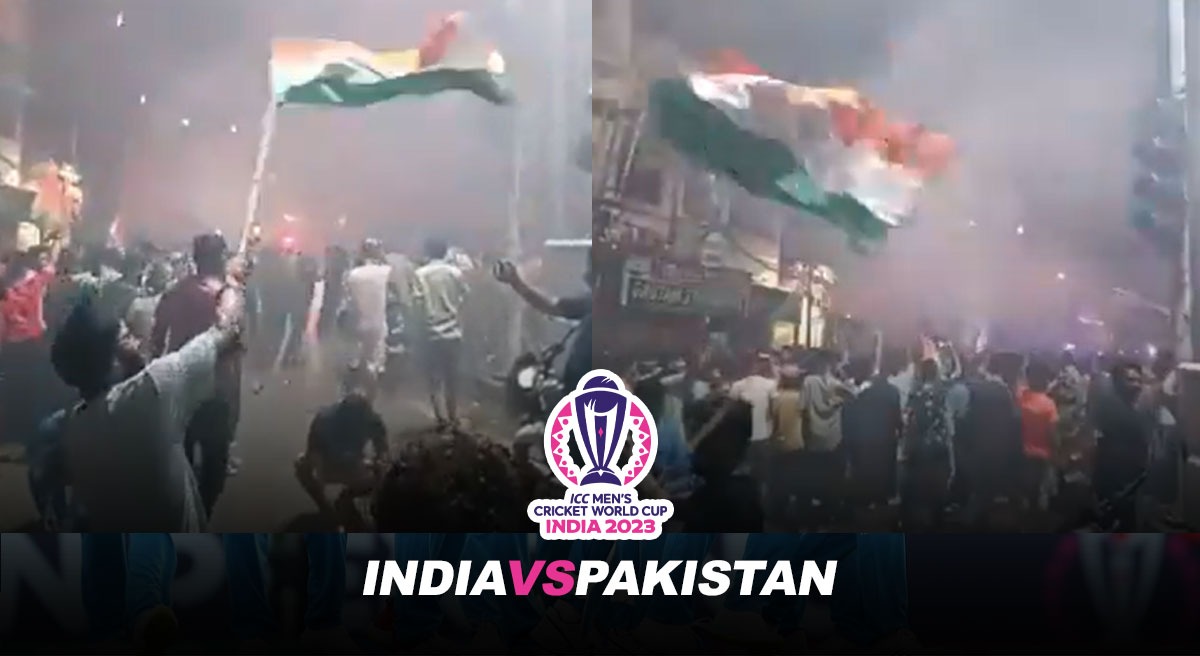Amit Shah, Union Home Minister of India on Tuesday during the first day of Winter Session of Parliament, asserted that the concept of “One flag, One Prime Minister, one Constitution” was not a political slogan and the BJP firmly believes in the principle and finally implemented it with regard to Jammu and Kashmir.
Responding to a remark by TMC’s Saugata Roy in the Lok Sabha that “ek nishan, ek pradhan, ek samvidhan (one flag, one head, one constitution)” was a “political slogan”, Shah wondered as to how can a country have two prime ministers, two constitutions and two flags. He said Roy’s remarks were “objectionable”.
While responding to a remark from the opposition benches, Shah said, “Whosoever did it was wrong. Narendra Modi has corrected it. Your approval or disagreement does not matter. The entire country wanted it.” This comment was made in an apparent reference to the abrogation of provisions of Article 370 in Jammu and Kashmir.
He went on to state that “one symbol, one head, one constitution” was not an election slogan. “We had been saying since 1950 that a country should have one PM, one flag and one constitution and two will not do and we have done it.”
Soon after Roy ended his speech on the Jammu and Kashmir Reservation (Amendment) Bill and the Jammu and Kashmir Reorganisation (Amendment) Bill, Union Minister Piyush Goyal said while the TMC leader mentioned Syama Prasad Mukherjee, he should have also recalled his sacrifice. The remarks were made during the debate on the mentioned Bills.
Roy said he had taught in a college named after Mukherjee and “ek nishan, ek pradhan, ek samvidhan” was his slogan and it was a “political slogan”. Shah then rose to hit back at the TMC member.
What is Amit Shah-Modi and BJP’s promise of ‘One Flag, One Nation and One constitution’?
Scrapping of Section 370 and 35(A) brought the Union Government into a lot of limelight considering their bold moves just after a year being selected as the Government of India. Jammu & Kashmir had been separated from the country; only because of these rules formed by the government back in 1950s.
In 2019, when these rules were banished J&K became an inseparable unit of the country. People were able to own properties, days of national importance like Independence day and Republic Day was celebrated with pride. Terroristic activities slowly reduced as the state was re-connected with the country.

For almost 7 decades the northern state was not given importance except for tourism. The business and infrastructural opportunities were blindsided. Now, the Union Government is making a bridge hundreds of metres above mean sea level to compete with the likes of China and Pakistan in case of a seize.
People in J&K never accepted the national flag and the constitution but now with loads of opportunities opened, and lesser risk; J&K is India and India is a whole.
More about J&K Reservation Amendment Bill; brought forward by Home Minister, Amit Shah
The Lok Sabha took up the Jammu and Kashmir Reservation (Amendment) Bill, 2023 and the Jammu and Kashmir Reorganisation (Amendment) Bill, 2023 for consideration and passing during the first day of the Session.
The Jammu and Kashmir Reservation (Amendment) Bill, 2023, amends the Jammu and Kashmir Reservation Act, 2004. The Act provides reservation in jobs and admission in professional institutions to members of Scheduled Castes, Scheduled Tribes, and other socially and educationally backward classes.

On the other hand, the Jammu and Kashmir Reorganisation (Amendment) Bill, 2023 amends the Jammu and Kashmir Reorganisation Act, 2019. The 2019 Act amended the Second Schedule of the 1950 Act to specify the total number of seats in the Jammu and Kashmir Legislative Assembly to be 83. The proposed Bill increases the total number of seats to 90.
It also reserves seven seats for Scheduled Castes and nine seats for Scheduled Tribes. The Bill adds that the Lieutenant Governor may nominate up to two members from the Kashmiri migrant community to the Legislative Assembly.
One of the nominated members must be a woman. Migrants are defined as persons who migrated from the Kashmir Valley or any other part of the state of Jammu and Kashmir after 1st November 1989 and are registered with the Relief Commissioner.












